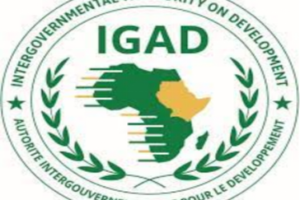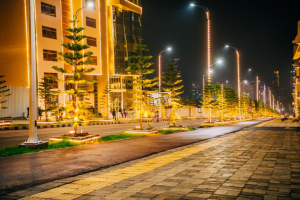On July 6th 2023 the House of Peoples Representatives of Ethiopia held its 28th regular session and it was intended to approve the budget of the Ethiopian fiscal year 2016 in the presence of Prime Minister Abiy Ahmed (PhD). The premier was in parliament to give explanations on the raison d’être of the budget and respond at the same time to questions presented to him by the MPs.
The premier was presented with a variety of questions that ranged from primarily the performance of the government in the economic field, particularly the issue of the cost of living that has continued to spiral making life almost impossible for the lower economic section of the society. Questions were also presented to the premier on why there were so many problems in the country in the other spheres as well such as the political sphere as well as the cultural and social sphere and what the government was doing in order to tackle them.
In fact there were many poignant questions that challenged fiercely the leadership of the ruling Prosperity Party by opposition politicians showing how the atmosphere in parliament has changed looking like the advanced countries’ houses. One MP even daringly went to the extent of asking the premier to dissolve the cabinet, dismiss the parliament and call for fresh elections so that a newly elected government would come to place and may be manage to solve the problems of the country with another approach as the current government’s efforts, according to this MP, have not succeeded to tackle them successfully.
The premier began to address the series of questions posed to him by first putting into context the situation of Ethiopia in the midst of a world that is increasingly gripped by unpredicted economic problems due to various reasons. He said Ethiopia’s current performance could not be well interpreted, understood and appreciated if we try to take it as an island by itself which it is not.
The premier referred to the major problems of the country which the government has not managed to cope with as it hoped and aspired due to a multiplicity of problems. He pointed out since he came to office, his government has performed well in many respects with the single obstacle that has been a daunting challenge and that is inflation.
The premier admitted that the concerns of the MPs and the Ethiopian people in general regarding inflation were legitimate but that his government was doing all it could to mitigate the bad effects of inflation with various policy measures including the Home Grown Economic Reform Phase Two which had to be revised on the experience of the shortcomings of the first one. He said in fact the current budget was deliberated and drafted after taking into account what measures should be taken in order to better face and contain the spiraling inflation and check it within reasonable bounds.
Furthermore, the premier depicted the current inflationary tendency as an epidemic as it has affected negatively practically the entire world. He said it was primarily a direct result of the Covid pandemic which debilitated the economy of the entire world including the ones that are most advanced and of grand magnitude such as the US, China and European giants. He said although the effects of inflation varied from country to country depending on the resistance and resilience of each one of them, it however has been on the top agenda of each and every state in the world. No nation he noted was exempt from the ill effects of inflation.
Following the measures that the US took to fight inflation by increasing interest rates, there were serious consequences on the economies of the entire world which had their currencies devalued vis-à-vis a strong dollar due to the US Treasury’s measures and suddenly countries found themselves lacking foreign currency and had to use their reserves they meant for emergency and crisis situations to cover for this contingency.
Countries such as Ethiopia found themselves to pay more debt due to the depreciation of their currencies and this has had huge impact on the performance and dynamics of their economies. The premier elaborated that this appreciation of the dollar vis-à-vis all the major currencies of the world has resulted in spiraling inflationary tendency and hence people found out that their money’s value went down. The most severe consequences were felt in countries such as Ethiopia which had huge foreign debt and they had to pay more than what they normally would. But he said Ethiopia has not defaulted on its debt unlike a number of countries who are now struggling to survive in the raging waters of the economy.
However, the premier noted his government did not sit idle and suffer the consequences passively but has begun to take a series of macroeconomic measures that would help fight inflation head on and try to lessen the suffering of the people. He said the economy was thus forced to perform less than how it would have had it not been for the current international situation and the fall outs of the same.
The Ukraine-Russia conflict was also another huge economic obstacle that has put in crisis many countries that relied on the wheat, fuel and fertilizers coming from these countries Abiy said. The supply chain was seriously disrupted due to the hostilities and overall impact on the economies of practically every country was inevitable, he added. Fuel prices skyrocketed even in Europe and grain became less readily available. In Ethiopia the price of edible oil jumped up sharply becoming hardly accessible for many lower income families.
Prime Minister Abiy Ahmed said that his government’s worries were mostly concentrated on the lower income brackets of the country and the series of measures were adopted in consideration of this reality. The performance of the economy was better than most countries even by the testimony of the IMF which is a reputable judge. In fact, he said the IMF predicted that Ethiopia was doing relatively better than most countries with an average growth rate of around six per cent compared to less than four for many African countries. The premier told parliament that the performance of his government was good but unfortunately not quite enough to iron out completely the major economic problems of the country such as inflation and full youth employment.
On the whole he said beside the tangible growth his government has brought during the past years since his party took office, the numbers also validate the dynamism of the economy and this was witnessed by everyone who came to visit Ethiopia, he noted. There are undeniable positive facts when it comes to evaluating the Ethiopian economic trajectory and trying to dismiss or take for granted these achievements as some politicians try to do would not be fair by any standards.
He said more efforts are in the pipeline because not all the objectives of his government were met. However he was quick to reject the criticism of some politicians who try to dismiss all the merits and achievements of the government even if he believes that criticism and a call to rectify certain things was welcome and healthy in any democracy.
The premier said among the major positive results of the policies of the government that could very easily be observed are those visible by looking at the various mega projects that have been completed and have begun to give full service. He mentioned the various tourist projects such as the Unity Park, Friendship Park, Entoto Park in Addis including the Science Museum and Abrohot Library, the Riverside Project, most of which were completed with the assistance of foreign countries but also appreciated the generosity of Ethiopian nationals who contributed their money to carry out the various projects outside Addis such as the Gorgora Project in Amhara, the Hallala Kela Project in the new South West Region, the Wonchi Project in Oromia and the Koisha Project in the South Region, which are about to be completed and be handed over to the respective regions where they are found.
The premier noted that these were huge contributions to the potential of promoting the tourist industry which Ethiopia needs to exploit to the maximum because it is still virgin and untapped. Abiy told the MPs that countries such as Italy and France were visited by tens of millions of tourists annually injecting billions to their economies and that even Egypt gets as much as four billion dollars a year from tourism. Comparatively one should say Ethiopia’s performance is still weak and bleak.
Dr. Abiy underlined Ethiopia needs to exploit this huge potential and his government is moving at full speed towards fulfilling such ambition regardless of the criticism of certain politicians who blame the government for not focusing on helping the poor people rather than ‘waste’ billions on luxurious projects. However, the premier said almost all of the budget drafted for the coming year is oriented on helping alleviate the hardship of the poor and less well-off and aims to tackle the inflationary tendency by restricting the overflow of cash injected in the economy. He said Ethiopia had everything it takes to excel in tourism if it prepares the appropriate ground to attract foreign tourists and make them feel comfortable here. The premier specifically mentioned Hallala Kela as a case in point and said that it always sold out with tourists flocking there.
As more than a third of the economy relies on the services sector, tourism is a key element in this and is bound to make an increase in the next years, the premier noted. The transport sector as well was his focus as Ethiopian Air Lines is one of the main economic actors of the country in terms of fetching foreign currency vital for the economy. The premier also highlighted how the financial sector had been navigating in gold by all parameters as a sign of a strong economic expansion. He informed parliament that more and more people were saving money which banks in turn can offer as a loan and more private sector actors were benefiting from these loans that served them to expand their small businesses.
The number of people who qualified to take loans and invest in their businesses has increased to millions unlike previous years when digital banking was not practiced as it is now. Banking has expanded a lot and this scenario of growing in number from 18 in the pre-reform days to thirty one is good for the economy to continue to grow with more people having access to banking services.
Today the premier said there are now more than a hundred million bank accounts or books opened as opposed to thirty four million a few years ago, and this stimulates the financial sector. With more capital and more people getting employed in the private sector the economy is bound to flourish healthily. Today furthermore he said the banks give most of their loans to the private sector (about 85%) unlike in the past when seventy per cent of the loans were given to the government coffers.
This is a major shift he underlined and is welcome because it becomes a huge catalyst of economic growth. With the introduction of the capital market next year more progress is expected in the financial and investment sector, he added. Among the major challenges that his government was bound to face is the unemployment rate because he said three million people want jobs every year and for this to be addressed the economy needs to further expand and absorb this work force. Today the government has the new ministry called Ministry of Labor and Skills and its mandate is to find out exactly how many unemployed people there are and how many got jobs every year preparing all the numbers in a special data collection. There have been demands of Ethiopians’ labour and this ministry is signing agreements on how to dispatch Ethiopian laborers aboard with all their rights respected and no abuses committed. This is another good news for the economy he said.
BY FITSUM GETACHEW
THE ETHIOPIAN HERALD THURSDAY 13 JULY 2023





